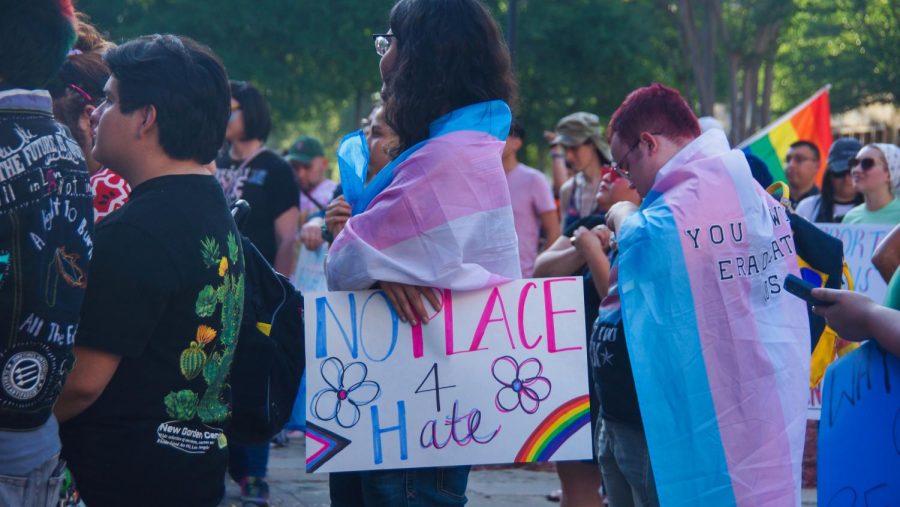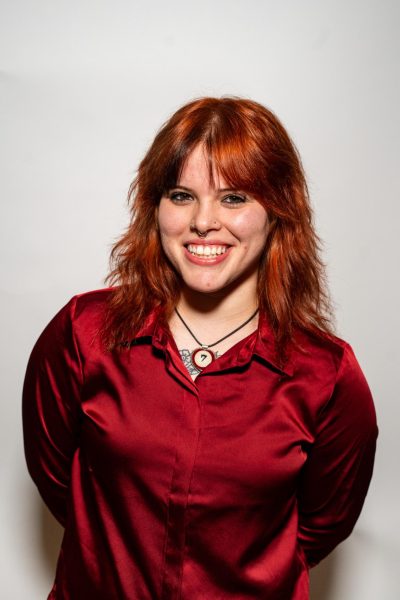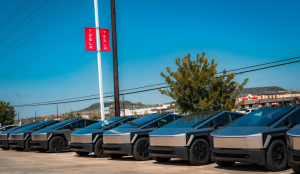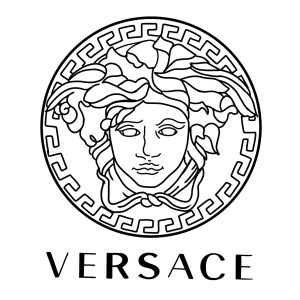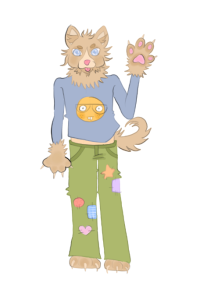‘The March of Us’ commemorates Trans Day of Visibility
April 4, 2023
Unfiltered Wings and The J Pan Project organized San Antonio’s first ‘The March of Us’ on Friday, March 31 — which was Transgender Day of Visibility.
The march was also promoted by Queer Youth Assemble alongside several similar marches that took place across the country on this day.
Protesters gathered in front of the Bexar County Courthouse, which was the starting point of the San Antonio-based march.
“This was not just any march,” Rain Garcia, founder of Unfiltered Wings, said. “This was the very first march in the history of San Antonio. This whole march was created for the transgender [and] non binary community, but it was also to show our community hope and to show our trans people and our non binary people [that] our allies are strong and this march was to show San Antonio that San Antonio is not a city of hate”
“With everything that’s going on in the legislature, here in Texas and across the country, and as politicized as trans people specifically but the LGBTQ community as a whole are being targeted, this march was about celebrating joy,” Jeremy Sarten, executive director of The J Pan Project, added. “This march was about harnessing all of that inner rage and anger and saying ‘We’re here. We have always been here. We will continue to be here. And you can stay mad, or you can grow up. Because we’re not going anywhere.’”
Different groups participated in the march, including the Party for Socialism and Liberation and Veterans for Equality.
The march took place as American lawmakers are currently attempting to pass 449 bills that would harm the LBGTQ+ community. These bills would limit healthcare that would be accessible to trans individuals, ban dressing as a male or female impersonator in public and discussing sexuality in schools. If even a minority of these bills pass it can still be devastating to the LGBTQ+ community. The Trevor Project, a national LGBTQ+ youth suicide-prevention organization, stated that 71% of LGBTQ+ youth said the debating of these bills has made their mental health decline. The Trevor Project also stated 86% of trans youth said this legislation had negative outcomes on mental health.
Benjamin Clodfelter, a Veterans for Equality member, spoke about bills such as SB 1029 and SB 14 that target the LGBTQ+ community.
“So our group and myself included feel really passionate about trying to defend marginalized people and marginalized groups all across the country,” Clodfelter said. “I also have dear friends that are trans, and with the nature of the discourse that’s happening across the country right now, myself and a bunch of other veterans felt motivated. [We said], ‘Hey, I’ve got the training and experience to do something about it and try to step in and help keep people safe.’”
Clodfelter remarked that the U.S. government’s target of marginalized groups is an attack on the people of the United States.
“Several of my close friends have children, and they’re at risk of losing their children to Child Protective Services,” Clodfelter said. “There [are] a lot of other veterans that I know that are trans that will not be able to identify [as such] on official documents. If this legislation passes, these people will not be able to receive the health care that they need. We already have a huge problem with veteran suicides in the United States, further ostracizing trans veterans that already were [at] great risk of suicide as it is; it’s just asking that they’re saying they want my friends to kill themselves, and I’m not okay with that.”
Ariana Ruiz, one of the march’s participants, talked about the first-hand impact of anti-trans legislation.
“Being a trans woman of color in San Antonio is just really nerve-racking these past couple of months because of all that’s going on with these anti-LGBTQ+ bills, and feeling safe in my city is important to me,” Ruiz said. “That’s pretty much why I’m here.”
Ruiz explained why the political spotlight has been focused on the trans community these past few months and why the lawmakers are attempting to enact these measures.
“I think we’re being targeted because people just don’t understand us,” Ruiz said. “They don’t. They’re afraid to know the truth about who we are. This is a country of diversity, and [it] does not need to be divided anymore.”
Despite the presence of counter-protesters, speakers continued to share personal stories and tales of hardships about what it means to be a member of the LGBTQ+ community. As the speakers finished, the march began. Participants made their way to N Main Ave. before ending in front of Heat, a popular gay nightclub.


